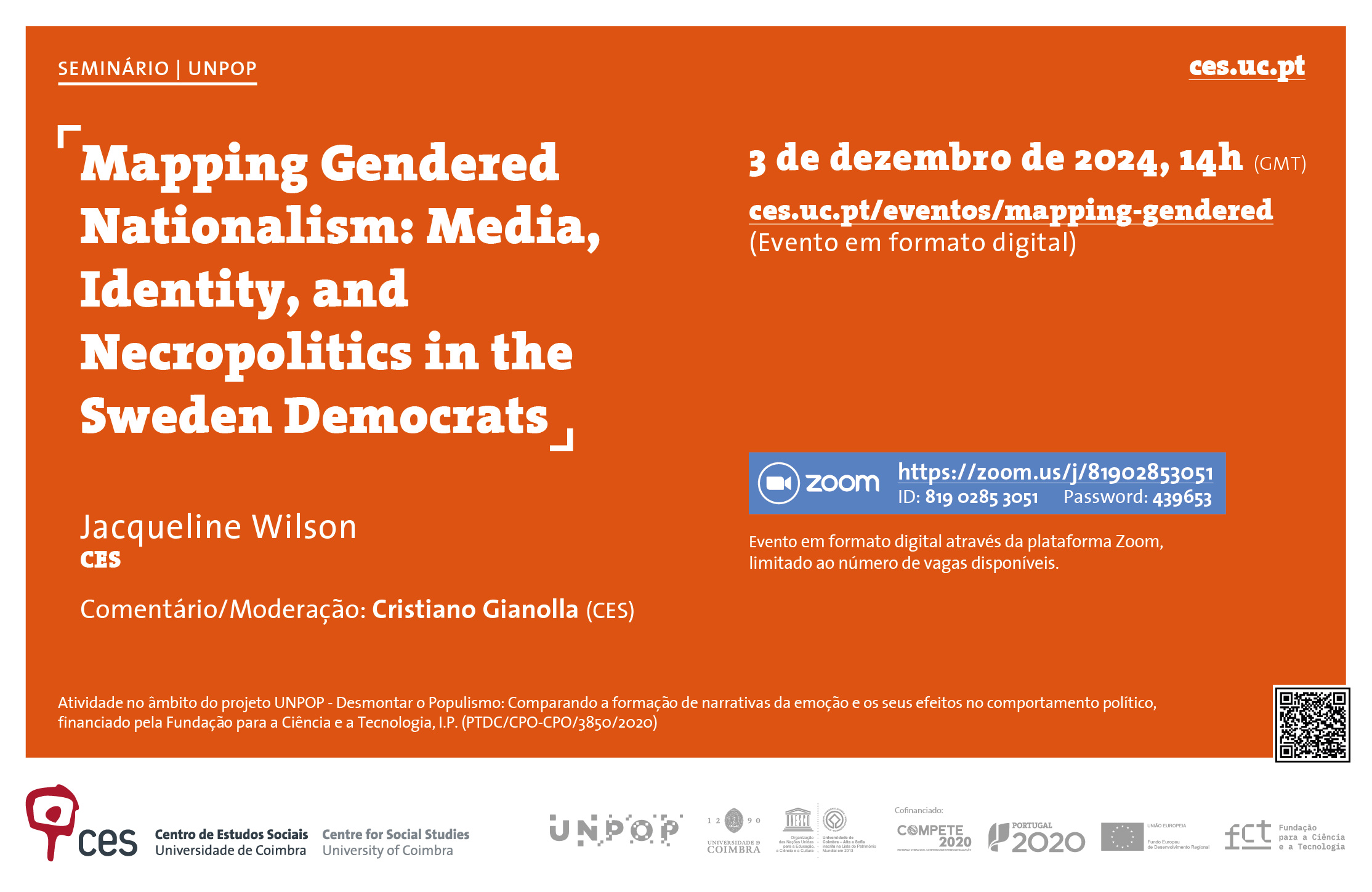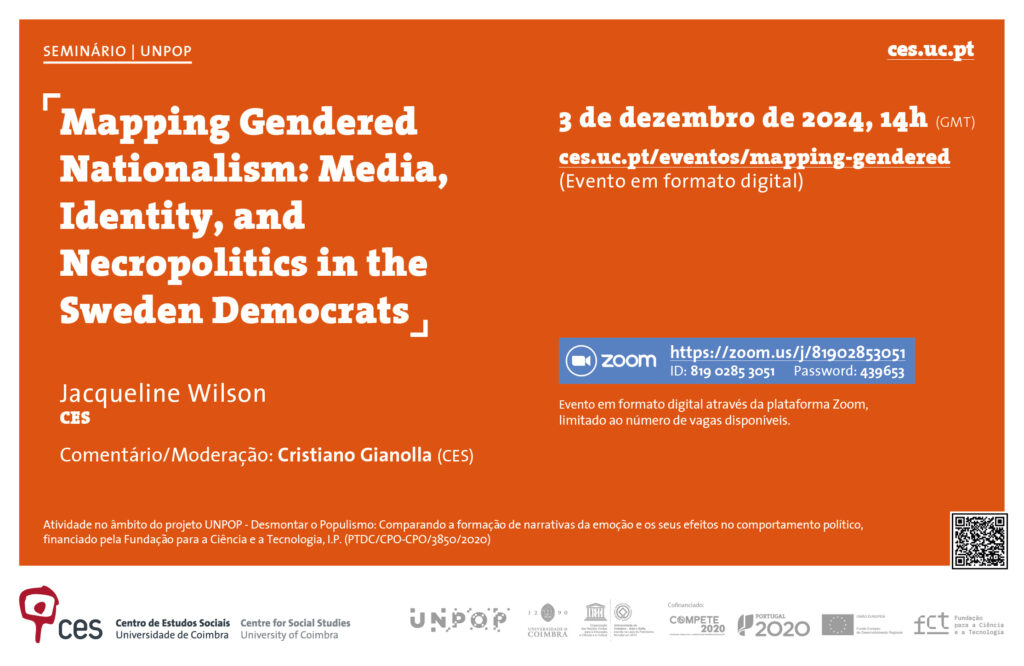Jacqueline Wilson (CES)
December 2024, 14h00
Online
This seminar investigates the interplay of gender, media, and nationalism through the lens of Achille Mbembe’s theory, particularly his concepts of necropolitics and biopolitics critique, as they relate to female nationalism within the Sweden Democrats, a radical nationalist party in Sweden. By adopting Mbembe’s framework, I analyze how nationalist discourses actively construct and regulate identities, particularly focusing on women’s voices and their roles in shaping these narratives. The study explores how the Sweden Democrats leverage media to articulate a vision of national identity that simultaneously empowers and marginalizes women, revealing the complexities of their participation in a political landscape predominantly characterized by male dominance. I examine the ways in which the party’s rhetoric and imagery reflect a broader necropolitical logic, wherein certain bodies are granted legitimacy and protection while others are rendered disposable. Through this critical lens, the seminar aims to illuminate the implications of these dynamics for understanding gendered experiences within radical nationalism and the broader societal context in Sweden.
Moderator and discussant: Cristiano Gianolla, CES
Bio note
Jacqueline Wilson is a dedicated researcher specialising in the study of violence, analysing it through various lenses—from physical violence to indirect forms that are concealed within societal institutions. Currently, she is a Research Fellow at INTI University College and a post-doctoral researcher at the Centre for Social Studies, University of Coimbra, Portugal. Dr. Wilson critically examines how institutional violence is disguised in public healthcare, media, and political spaces. She earned her Ph.D. in Sociology from the University of Rhodes, focusing on the violence experienced by Black lesbians in Cape Town townships. Her dissertation emphasised that indirect forms of violence, often perceived as less harmful than gender-based violence, still have significant implications. During her academic tenure in Sweden and Norway, she researched unpaid domestic labour among non-kinship children in households in Kampala, Uganda, highlighting the effects of neoliberal policies on children transitioning from rural to urban settings. Currently, Dr. Wilson explores how exposure to violent language and imagery in political advertising and social media influences public attitudes and voting behaviours. Her recent publication, “Feminist Ethnographic Qualitative Interviews Unveiling Gender-Based Violence Targeting Black Lesbians in Cape Town Townships,” appears in the International Journal of Arts and Humanities. She also serves as a book reviewer for The Future of Media in Asia (Routledge)
This seminar is part of a series within the UNPOP project – UNpacking POPulism: Comparing the formation of emotion narratives and their effects on political behaviour, which aims to explore how narratives of emotion allow a deeper analysis of the way populist phenomena constitute and influence political behaviour.
Thus, the series of events developed throughout the project will address several issues involving the recent growth of populism, focusing on the role of emotions – both those considered negative such as anger and fear, and those considered positive such as hope and love – in political behaviour.
UNPOP is coordinated by Cristiano Gianolla and Lisete Mónico and is based at the Centre for Social Studies and by CINEICC – Center for Research in Neuropsychology and Cognitive and Behavioral Intervention of the University of Coimbra, and is funded by the Foundation for Science and Technology (PTDC/CPO-CPO/3850/2020).
____________________
This activity will be provided through Zoom platform and does not require registration. Participation is limited to the number of places available > https://zoom.us/j/81902853051 | ID: 819 0285 3051 | Senha: 439653
Please keep the microphone on mute until the discussion is open. The host may remove disruptive participants.
Open activities in digital format, such as this one, do not grant a declaration of participation. Such document will only be guaranteed in events with prior registration and regulated access.



